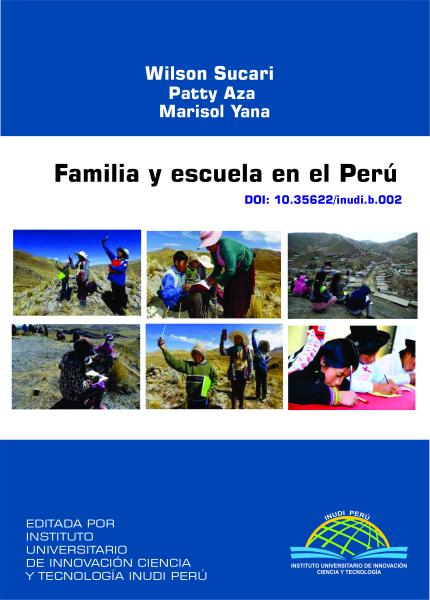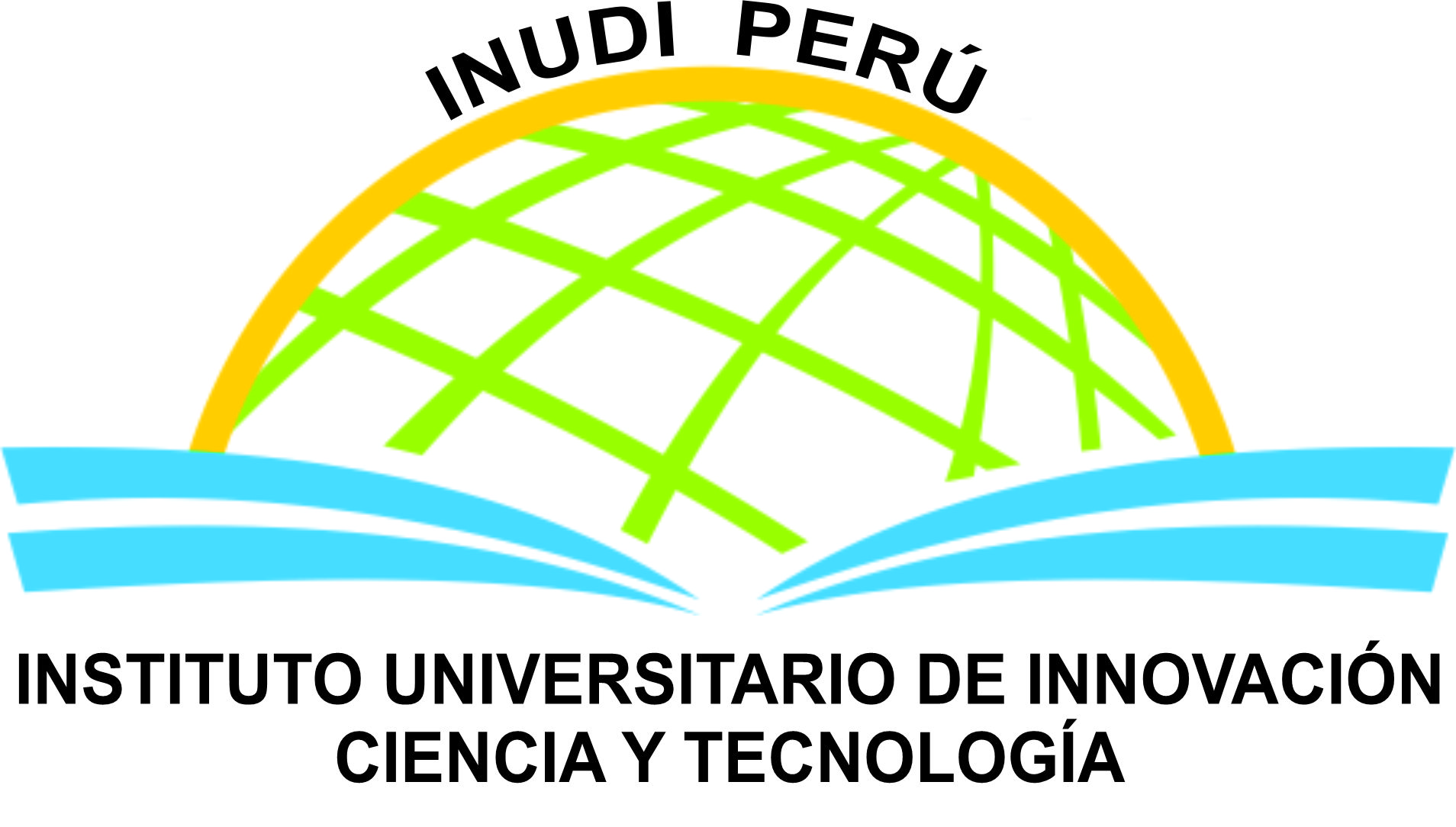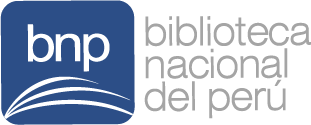Family and school in Peru
Keywords:
family, schools, PeruSynopsis
Regarding family participation in school education, in recent years, different researchers and institutions have considered the importance of its analysis because benefits have been found related to the comprehensive improvement in the development of students, the educational institution, the family and society. general. In this context, this research has the general objective of understanding the current situation of family participation in Peruvian school education, through the following specific objectives: a) Identify those responsible for the ministries and organizations that work in education and the participation of families; b) Analyze and systematize the laws, policies or programs regarding family participation in school education; c) Explain the current conditions of family participation in school education in Peru. This study is based on the review and analysis of information in the field of family participation through the review of legal documents, reports, research, etc. In this way, this study offers a systematization of the information collected, through a documentary analysis of the content of the study topics. This work is structured in three parts. In the first part, the methodological framework of the study and the conceptual framework are presented, where a review of the literature is carried out on the conceptualization, the types or models, and the benefits of family participation in the school education of children. In the second part, the analysis of the conditions of family participation in Peruvian school education is carried out, through the revision of Legal Norms such as the Political Constitution, the General Law of Education, the Law of Association of Parents of Family, among others. . Likewise, the study of different reports and investigations where the practice of family participation has materialized is added. The third part offers a series of conclusions and recommendations that may be useful for the orientation and implementation of policies and programs for family participation in the school education of children.
References
Balarin, M., & Cueto, S. (2008). La calidad de participación de los padres de familia y el rendimiento estudiantil en las escuelas públicas peruanas (Niños del Milenio ed.). Lima: GRADE.
Benavides, M., Rodrich, H., & Mena, M. (2009). Niveles de acoplamiento y desacoplamiento en la relación familia - escuela en contextos rurales: el caso de una muestra de familias de Quispicanchis. En S. d. Peruana, Revista Peruana de Investigación Educativa (págs. 7-30). Lima: SIEP.
Bogdanowicz, M. (1994). Rapport général sur la participation des parents aux systèmes scolaires dans les douze pays de la Communauté européenne. Bruxelles: Commission des Communautés européennes.
Comellas, M. J. (2009). Educar en la comunidad y en la familia: Acompañando a las familias en el día a día. Valencia: Nau llibres.
Contraloría General de la República del Perú. (2008). Programas Sociales en el Perú: Elementos para una propuesta desde el control gubernamental. . Lima: Contraloría General de la República.
de la Guardia Romero, R. M., & Kñallinsky Ejdelman, E. (2007). Educación familiar: Sistema escolar y familia. España: Universidad de las Palmas de Gran Canaria.
Dessen, M. A., & da Costa Polonia, A. (2005). Em busca de uma compreensão das relações entre família e escola. Psicologia Escolar e Educaciona, 303-312.
Domingo, J., Martos, M. A., & Domingo, L. (2010). Family - school partnership in Spain: Challenges and realities. REXE: “Revista de Estudios y Experiencias en Educación”., 111-133.
Eccles, J., & Harold, R. (1996). Family involment in children's schooling. In J. Booth, & J. F. Dunn, Family school link: how do they affect educational outcomes? (pp. 3-34). New Jersey.
Epstein, J. L. (2001). School, family, and community partnerships: preparing educators and improving schools. Colorado: Westview Press.
Epstein, J. L., Sanders, M. G., Simon, B. S., Salinas, K. C., Jansorn, N. R., & Van Voorhis, F. L. (2002). School, Family, and Community Partnerships: Your Handbook for Action. (Vol. Second Edition). (A. S. Company, Ed.) California: CORWIN PRESS, INC .
Espín, J. V. (2002). El análisis de contenido: una técnica para explorar y sistematizar información. XXI. Revista de Educación, 4 (2002): 95-105. Universidad de Huelva, 95-105.
Gómez Mendoza, M. Á. (2000). Análisis de contenido cualitativo y cuantitativo: Definición, clasificacion y metodología. Revista de Ciencias Humanas - UTP(Revista Nº 20). Recuperado el 03 de 01 de 2016, de http://www.utp.edu.co/~chumanas/revistas/revistas/rev20/gomez.htm
Grolnick, W., & Slowiaczek, M. L. (1994). Parents' involvement in children's schooling: A multiplidimensional conceptualization and motivational model. Child Development, 237-252.
infobai América . (2012). Retrieved from Crece la cobertura educativa pero baja la calidad: http://www.infobae.com/2012/10/14/1059684-crece-la-cobertura-educativa-pero-baja-la-calidad
Jahuira, R. (2001). Participación comunitaria en la gestión educativa: Estudio de caso en la Escuela de Educación Primaria Nº 70148 de la Comunidad Campesina de Chamchilla, Departamento de Puno – Perú. Cochabamba, Bolivia: Universidad Mayor de San Simón.
Jeynes, W. (2011). Parental Involvement and Academic Success. New York: Routledge.
Martiniello, M. (1999). Participation of Parents in Education: Toward a Taxonomy for Latin America. HARVARD UNIVERSITY, Harvard Institute for International Development. HARVARD UNIVERSITY: Development Discussion Papers: Central America Project Series.
Massi, J. (2011). Maximizing Parent Involvement: Revisiting Joyce Epstein’s Model for School, Family, and Community Partnerships., (pp. 1-23). Morgantown.
McMaho, R., Kohl, G. O., & Lengua, L. (2000). Parent involvement in school conceptualizing multiple dimensions and their relations with family and demographic risk factors. Society for the Study of School Psychology, 501-523.
Moreno Olivos, T. (2010). La relación familia-escuela en secundaria: Algunas razones del fracaso escolar. Profesorado: Revista de currículum y profesorado, 14(2), 240-255.
Planeta, A. (Ed.). (2015, enero 22). Las diez claves de la educación en Finlandia. Retrieved 12 27, 2015, from AulaPlaneta: Innovamos para una educación mejor: http://www.aulaplaneta.com/2015/01/22/noticias-sobre-educacion/las-diez-claves-de-la-educacion-en-finlandia/
Presidencia de Consejo de Miminstros. (2016). Constitución Política del Perú, 1993. Retrieved from Presidencia de Consejo de Ministros: http://www.pcm.gob.pe/wp-content/uploads/2013/09/Constitucion-Pol%C3%ADtica-del-Peru-1993.pdf
Pugh, G., & De'ath, E. (1989). Towards partnership in the early years. London: National Childen's Bereau.
Reparaz, C., & Naval, C. (2014). Bases conceptuales de la participación de las familias. In M. d. deporte, La participación de las familias en educación escolar (p. 23). Madrid: Secretaría General Técnica.
Reveco, O. (2004). Particiación de las familias en la educación infantil latinoamericana. (I. e. S.A., Ed.) Santiago, Chile: Oficina Regional de Educación de la UNESCO para América Latina y Caribe.
Rivas B., S. (2007). La participación de las familias en las escuelas. Revista española de pedagogía, 559-574.
Sánchez de Horcajo, J. J. (1979). La gestión particiativa en la enseñanza. Madrid: Narcea.
Santos G., M. (1995). Democracia escolar o el problema de la nieve frita. In A. A. V., Volver a pensar en la educación. Madrid.
Sarmiento, P., & Zapata, M. (2014). Avances de Investigación Educación y aprendizajes: Modelo conceptual sobre la participaciñon familiar en la escuela. Lima: GRADE.
Tamariz, J. (2013). Participación de los padres de Familia en la Gestión Educativa Institucional. Lima: Pontificia Universidad Católica del Perú.
Velásquez, N. (2004). Participación de la familia aimara en el proceso de enseñanza aprendizaje escolar del niño en la escuela 70302 Canahuayto, Zepita-Perú. Cochabamba, Bolivia: Universidad Mayor de San Simón.

















